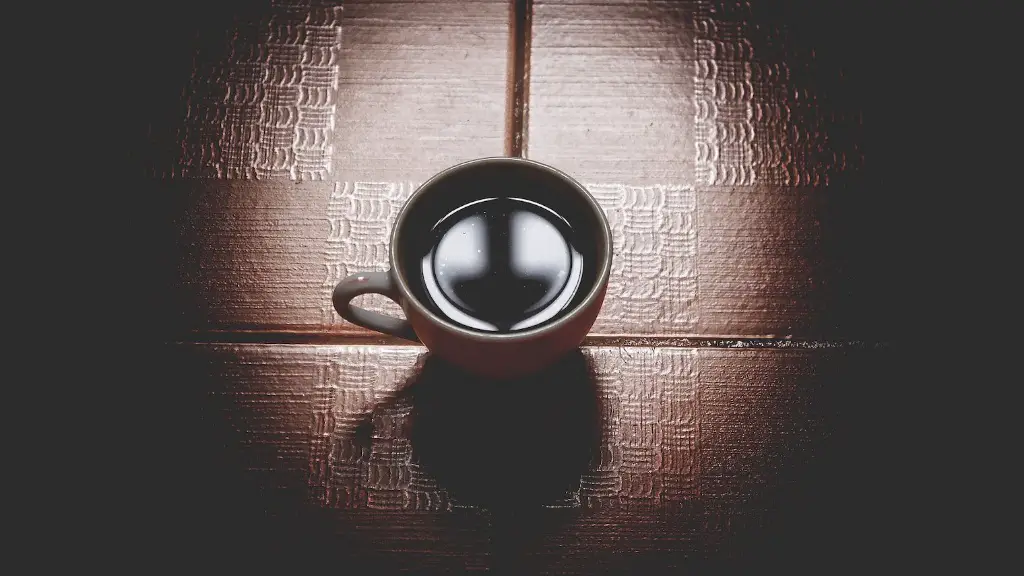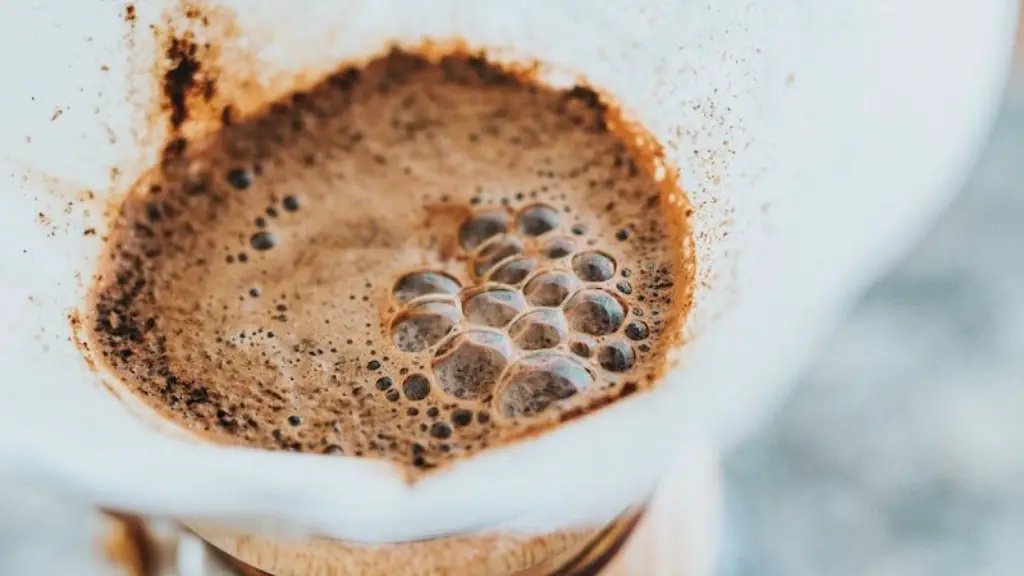The Effects of Caffeine on Urinating
Coffee is one of the world’s most popular drinks, and as it turns out, it has some powerful effects on urinating. Drinking coffee can often make people visit the restroom more often, and it can have a profound effect on bladder health. So does drinking coffee make you pee a lot? Let’s take a closer look.
The Science Behind Coffee and Urination
Coffee contains a lot of caffeine, and this is the key to understanding its effects on urination. Caffeine is a diuretic, meaning it can increase the production of urine. When this happens, people often find themselves urinating more frequently.
Caffeine also works by directly stimulating the bladder, increasing the urge to urinate. This is why some people find that they need to use the bathroom more often after drinking coffee.
How Much Caffeine Do You Need?
So how much coffee do you need to drink before you start to experience these effects? The answer depends on your body’s tolerance to caffeine. For some people, just a few cups of coffee can increase their urine output dramatically. For others, they might need to drink quite a bit of coffee in order to start feeling the effects.
Does Drinking Coffee Make You Pee A Lot? The Bottom Line
So does drinking coffee make you pee a lot? The answer is yes, it can. Caffeine is a diuretic, so it increases the production of urine. Additionally, it stimulates the bladder, leading to an increased need to urinate.
The effects of coffee on urination vary from person to person, as tolerance to caffeine can vary. Some people may find they need to visit the restroom more often after a few cups of coffee, while others may need to drink more in order to experience the effects.
Is It Safe to Drink Coffee?
So, is drinking coffee safe? Generally, the answer is yes. According to the Mayo Clinic, moderate caffeine intake is generally safe for adults, as long as it’s not consumed in large amounts. The key is to moderate your intake, so you don’t suffer from the effects of excess caffeine.
It’s also important to note that drinking too much coffee can lead to dehydration and other health issues. So if you find yourself needing to urinate frequently after drinking coffee, take a few moments to assess your hydration levels.
The Role of Coffee in Bladder Health
Coffee can have an impact on bladder health, too. According to a 2019 study, people who consumed more coffee were more likely to have an overactive bladder. This means they may feel the urge to urinate more frequently and with greater urgency.
The study was conducted on mice, so it’s not clear if similar results would be found in humans. However, it does suggest that coffee can have a dramatic effect on bladder health, so it’s important to moderate your intake.
Can Coffee Help Prevent Urinary Tract Infections?
Some people believe that drinking coffee can help prevent urinary tract infections, since the increased urine output can flush out bacteria. However, the evidence is not particularly strong on this point. A few studies have suggested that coffee could reduce the risk of UTIs, but the results are inconclusive.
Until more research is done, it’s impossible to say for certain whether drinking coffee can help reduce UTI risk. If you’re concerned about UTIs, it’s best to talk to your doctor.
Coffee and Kidney Stones
Coffee can also have an impact on the risk of developing kidney stones. A 2019 study found that people who drank more coffee had a lower risk of kidney stones compared to those who drank less. The increased urine output may be a key factor here, as it flushes out minerals and compounds that can contribute to the development of kidney stones.
While this is promising, it’s important to note that this research was done on mice and more research is required to confirm the results in humans.
Other Factors That Influence Urinary Output
It’s important to note that there are many other factors that can affect urinary output, such as age, gender, diet, and medications. So if you’re finding that you need to use the restroom more often, it’s best to talk to your doctor about other potential causes.
It’s also worth noting that coffee is not the only beverage that can have an effect on urination. Certain alcoholic drinks, like beer, can also lead to increased urine output.
Does Drinking Coffee Make You Pee A Lot? Takeaways
So does drinking coffee make you pee a lot? The answer is yes, it can. Caffeine is a diuretic, so it increases the production of urine. Additionally, it stimulates the bladder, leading to an increased need to urinate.
The effects of coffee on urination vary from person to person, as tolerance to caffeine can vary. Some people may find they need to visit the restroom more often after a few cups of coffee, while others may need to drink more in order to experience the effects.
It’s generally safe to drink coffee in moderate amounts, but drinking too much can have a negative impact on health. Additionally, it’s important to be aware of other factors that can influence urinary output, such as age, gender, diet, and medications. If you’re concerned about your urinary health, it’s best to talk to your doctor.
Effects of Coffee on Bladder Control and Urinary Tract Health
Caffeine can have a powerful effect on bladder control and urinary tract health. As well as increasing the frequency of urination, coffee can lead to an overactive bladder, increased risk of urinary tract infections, and a lower risk of developing kidney stones.
The effects of coffee on bladder control and urinary tract health vary from person to person and depend on the amount of coffee consumed. People who consume more than the recommended daily amount of caffeine may be at risk of negative health effects, such as dehydration.
The Role of Genetics in Caffeine Consumption
Caffeine is metabolized differently by each individual, and genetics can play a role in determining how much coffee a person can drink before experiencing negative effects. People with certain genetic variations may be more sensitive to caffeine, meaning they may need to limit their consumption in order to avoid negative side effects like an overactive bladder or dehydration.
Talk to your doctor about these genetic variations and make sure you’re aware of your body’s own tolerance for caffeine. This will help you stay within safe limits and reduce your risk of health issues.
Alternatives to Coffee
If you’re looking for an alternative to coffee, there are plenty to choose from. Herbal teas and decaffeinated forms of coffee and tea are good options, as they provide the same flavour without the negative effects of caffeine. Additionally, you could try sparkling water or fruit juices, which are often flavoured with natural ingredients and provide a refreshing, healthy drink.
If you’re looking to limit your caffeine intake, it’s important to read the labels on your drinks. This will help you avoid any hidden sources of caffeine, such as certain energy drinks or certain types of chocolate.
Tips for Drinking Coffee Safely
Whether you’re looking to reduce your caffeine intake or want to stay safe while consuming coffee, there are a few tips you can follow. First and foremost, get in the habit of moderating your intake and pay attention to the daily recommended limit for caffeine. Additionally, make sure you stay hydrated and monitor your urine output. Lastly, if you’re concerned about the effects of caffeine on your health, talk to your doctor.
When consumed in moderation, coffee can be an enjoyable part of a healthy lifestyle. Just remember to be mindful of the effects it can have and be sure to limit your intake.



